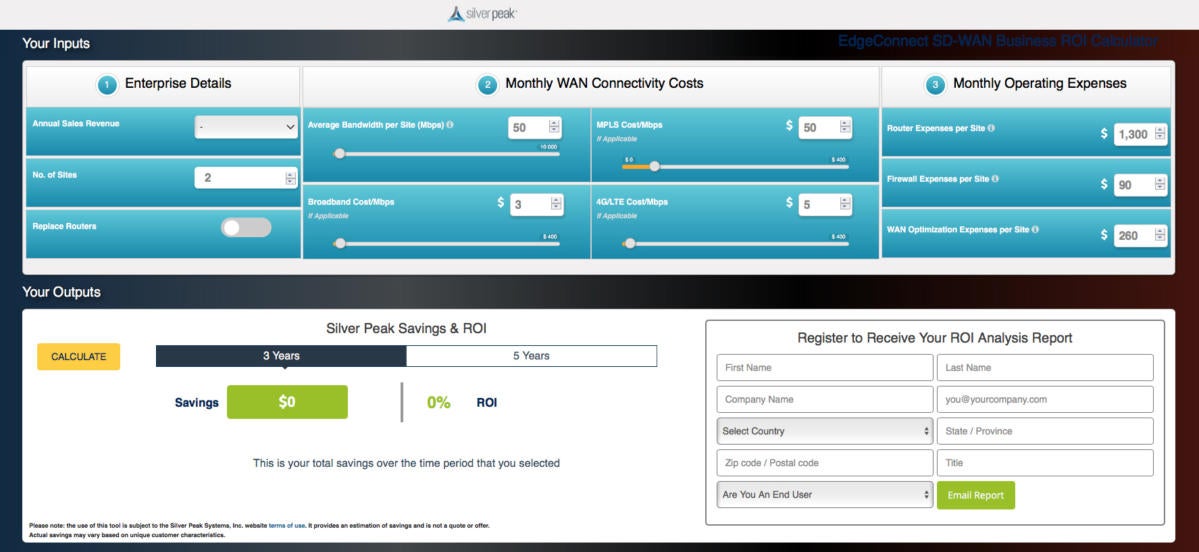sources/tech/20190401 Top Ten Reasons to Think Outside the Router -2- Simplify and Consolidate the WAN Edge.md
8.6 KiB
Top Ten Reasons to Think Outside the Router #2: Simplify and Consolidate the WAN Edge
We’re now near reaching the end of our homage to the iconic David Letterman Top Ten List segment from his former Late Show, as Silver Peak counts down the *Top Ten Reasons to Think Outside the Router. *Click for the #3, #4, #5, #6, #7, #8, #9 and #10 reasons to retire traditional branch routers.
The #2 reason it’s time to retire branch routers: conventional router-centric WAN architectures are rigid and complex to manage!
Challenges of conventional WAN edge architecture
A conventional WAN edge architecture consists of a disparate array of devices, including routers, firewalls, WAN optimization appliances, wireless controllers and so on. This architecture was born in the era when applications were hosted exclusively in the data center. With this model, deploying new applications or provisioning new policies or making policy changes has become an arduous and time-consuming task. Configuration, deployment and management requires specialized on-premise IT expertise to manually program and configure each device with its own management interface, often using an arcane CLI. This process has hit the wall in the cloud era proving too slow, complex, error-prone, costly and inefficient.
As cloud-first enterprises increasingly migrate applications and infrastructure to the cloud, the traditional WAN architecture is no longer efficient. IT is now faced with a new set of challenges when it comes to connecting users securely and directly to the applications that run their businesses:
- How do you manage and consistently apply QoS and security policies across the distributed enterprise?
- How do you intelligently automate traffic steering across multiple WAN transport services based on application type and unique requirements?
- How do you deliver the highest quality of experiences to users when running applications over broadband, especially voice and video?
- How do you quickly respond to continuously changing business requirements?
These are just some of the new challenges facing IT teams in the cloud era. To be successful, enterprises will need to shift toward a business-first networking model where top-down business intent drives how the network behaves. And they would be well served to deploy a business-driven unified SD-WAN edge platform to transform their networks from a business constraint to a business accelerant.
Shifting toward a business-driven WAN edge platform
A business-driven WAN edge platform is designed to enable enterprises to realize the full transformation promise of the cloud. It is a model where top-down business intent is the driver, not bottoms-up technology constraints. It’s outcome oriented, utilizing automation, artificial intelligence (AI) and machine learning to get smarter every day. Through this continuous adaptation, and the ability to improve the performance of underlying transport and applications, it delivers the highest quality of experience to end users. This is in stark contrast to the router-centric model where application policies must be shoe-horned to fit within the constraints of the network. A business-driven, top-down approach continuously stays in compliance with business intent and centrally defined security policies.
A unified platform for simplifying and consolidating the WAN Edge
Achieving a business-driven architecture requires a unified platform, designed from the ground up as one system, uniting SD-WAN, firewall, segmentation, routing, WAN optimization, application visibility and control in a single-platform. Furthermore, it requires centralized orchestration with complete observability of the entire wide area network through a single pane of glass.
The use case “Simplifying WAN Architecture” describes in detail key capabilities of the Silver Peak Unity EdgeConnect™ SD-WAN edge platform. It illustrates how EdgeConnect enables enterprises to simplify branch office WAN edge infrastructure and streamline deployment, configuration and ongoing management.
Business and IT outcomes of a business-driven SD-WAN
- Accelerates deployment, leveraging consistent hardware, software, cloud delivery models
- Saves up to 40 percent on hardware, software, installation, management and maintenance costs when replacing traditional routers
- Protects existing investment in security through simplified service chaining with our broadest ecosystem partners: Check Point, Forcepoint, McAfee, OPAQ, Palo Alto Networks, Symantec and Zscaler.
- Reduces foot print by 75 percent as it unifies network functions into a single platform
- Saves more than 50 percent on WAN optimization costs by selectively applying it when and where is needed on an application-by-application basis
- Accelerates time-to-resolution of application or network performance bottlenecks from days to minutes with simple, visual application and WAN analytics
Calculate your ROI today and learn why the time is now to think outside the router and deploy the business-driven Silver Peak EdgeConnect SD-WAN edge platform!
作者:Rami Rammaha 选题:lujun9972 译者:译者ID 校对:校对者ID


